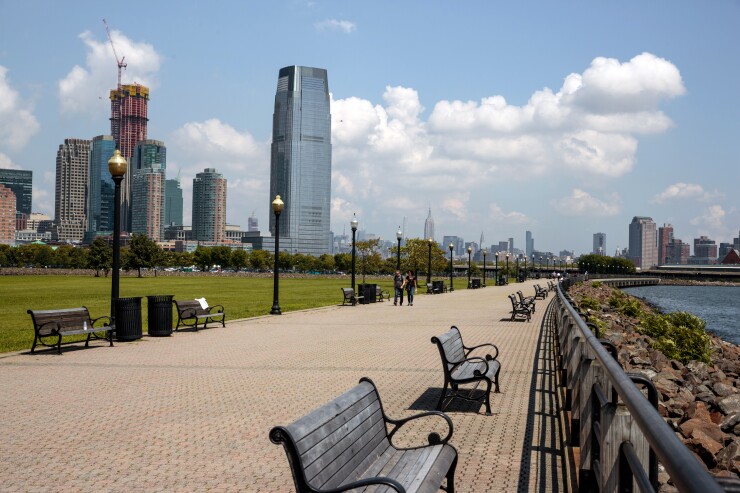Jersey City's settlements with two major entities are a credit positive because of additional revenue the agreements bring and the end to risks associated with the litigation, according to Moody’s Investors Service.
Jersey City recently approved settlements with the Port Authority of New York and New Jersey and Jersey City Medical Center that arose due to disputed tax payments. The Port Authority agreement provides Jersey City $52.97 million for 25 years while the JCMC resolution is worth $3.3 million over six years.

“While the revenue from both settlements is modest for a city of Jersey City’s size, the ancillary benefits are potentially significant,” Moody’s analyst Douglas Goldmacher wrote in a Jan. 9 report noting that the city’s revenues for the 2017 fiscal year were $596 million.
The Port Authority dispute dates to 2014 when Jersey City first filed a lawsuit against the transportation agency alleging it failed to pay owed taxes on certain properties. The
“Notably, the agreement calls for the PATH, city and Port Authority to share in any revenues derived from the city's redevelopment,” said Goldmacher. “The latter could be very valuable given Jersey City's real estate market.”
The litigation with JCMC, which is owned by RWJ Barnabas Health, arose from a trend throughout New Jersey where municipalities have sought property tax/PILOT revenues from for-profit activities at not-for-profit hospitals. Under the settlement, JCMC will pay Jersey City $300,000 annually in PILOTs for six years. The city and medical center also agreed under the agreement to collaborate on certain public health initiatives, which includes the hospital paying $250,000 annually for six years.
“After the six years, the matter of JCMC's taxes will need to be revisited,” said Goldmacher. “However, by then, it is likely the for-profit tax issue will be settled by statewide litigation or legislation.”
The city has about 270,000 residents, making it New Jersey's second most-populous, after Newark.
Moody’s upgraded Jersey City to Aa3 from A1 in October 2016 citing a “rapidly growing” and diversified tax base. S&P Global Ratings rates Jersey City general obligation bonds AA-minus.





